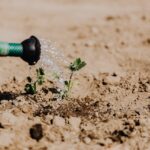How to Stay Hydrated During Pregnancy

Pastries and sweets are mostly the pregnancy cravings that get all the attention, but there’s one thing your body really wants that you overlook – Water.
Hello, soon-to-be mom. If you’re reading this, you’re very likely busy with all sorts of things like doctor’s appointments, shopping for baby stuff, decorating the nursery, and finding comfy shoes that fit your ‘growing’ feet. While you’re at it though, here’s one more thing to add to your pregnancy to-do list – drink plenty of water.
I know, I can absolutely relate. Between the constant bathroom trips and the feeling that your belly might pop open if you take one more sip, drinking water might be the last thing on your mind. But trust me, it’s super important for both you and your little angel.
Think of water as the silent hero of pregnancy. It’s helping your body make extra blood, create a comfy little pool (a.k.a amniotic fluid) for your baby to float in, and even ease some of those not-so-fun pregnancy symptoms. Plus, it’s keeping things moving in your digestive system (if you know what I mean).
But here’s the thing – staying hydrated during pregnancy can sometimes feel like a full-time job. Your body needs more water than usual, and sometimes it feels like you just can’t keep up.
In this post, we’re going to chat about why water is so crucial during pregnancy, how much you really need, and some super easy ways to stay hydrated – even when the sight of another glass of water makes you want to take to your heels.
So grab a drink (water, of course, 😉), get comfortable, and let’s talk about hydration for pregnancy.
Why Hydration Matters in Pregnancy
Alright, mama, let’s talk about why water is basically your pregnancy’s bestie.
1. It supports increased blood volume:
It is safe to say you’re basically a blood factory now. Remember how tired you’ve been feeling? Well, part of that is because your body is working overtime to make extra blood. We’re talking about 50% more than usual. All that extra blood helps get nutrients to your baby. Water is the main ingredient in blood.
2. It forms amniotic fluid (Your baby’s personal swimming pool):
Ever wonder what that amniotic fluid is made of? Yep, you guessed it – mostly water. This is your baby’s home for the next nine months, so keeping it topped up is very important.
3. It runs a nutrient delivery service:
Water is like the delivery truck that carries all the good stuff to your baby. Without enough water, it’s like being stuck in traffic – those nutrients might not get where they need to go as quickly or efficiently.
4. It helps with digestion and prevents constipation:
Let’s be real – pregnancy can really mess with your digestion. Water helps keep things moving along if you know what I mean. You can pretty much say goodbye to constipation when you’re properly hydrated.
5. It reduces the risk of UTIs:
Urinary tract infections are no fun, and they’re more common during pregnancy. Drinking plenty of water helps flush out your system and can help prevent these annoying infections.
6. It becomes your secret weapon against pregnancy discomforts:
Is it swollen ankles? Headaches? Or fatigue? While water isn’t an automatic cure for every ‘problem’, staying hydrated can help ease some of these common pregnancy troubles. It’s like palm oil in your pot of egusi soup – it just helps everything come together and taste better.
How Much Water Do You Need?
Now, the big question – just how much water should you be drinking? Let’s break it down for you.
● The general rule of thumb:
You’ve probably heard that eight glasses a day is the way to go. Well, when you’re pregnant, you need to step it up a bit. Aim for about 8-10 glasses daily. That’s roughly 2-3 litres. Sounds like a lot, right? Don’t worry, all you need do is start.
● Factors affecting individual needs:
There is no one-size-fits-all pattern to drinking water. Here’s the thing – every woman is different. Your water needs might change based on a few things, like these 4 factors:
- The weather: If it’s hot and humid (like during harmattan), you’ll need more water.
- Your activity level: If you’re moving around a lot, you’ll need to drink more.
- Your body size: Taller or heavier women might need a bit more water.
- If you’re carrying twins or more: More babies mean more water
● How to know if you’re drinking enough:
Your body is clever and will give you signs that you’re well-hydrated. These 3 signs should pretty much tell you’re well-hydrated:
- Your urine should be pale yellow, like the colour of Fanta Pineapple. If it’s darker, you need to drink more.
- You’re not feeling thirsty all the time.
- Your skin feels elastic. Try this trick – pinch the back of your hand. If your skin goes back to normal quickly, you’re properly hydrated.
● Dehydration signs to watch out for:
On the flip side, your body will also tell you when you need more water. Check out these 6 signs of dehydration:
- You feel very thirsty
- Your urine is dark yellow or amber
- You feel dizzy or lightheaded
- You have a dry mouth or cracked lips
- You’re not visiting the toilet as often as usual
- You have a headache that won’t go away
Practical Tips for Staying Hydrated
Alright, let’s get down to business. How can you actually drink all this water without feeling like you’re drowning? Here are some handy tips:
1. Make your water more appealing
- Spice up your water: Add some slices of cucumber, lemon, or orange to your water. It’s like making Chapman, but way healthier
- Temperature matters: Some days you might prefer your water cold like a chilled bottle of coke from the fridge, other days you might want it warm like morning tea. Listen to your body.
2. Create a routine
- Set alarms: You can use your phone to remind you to drink water. Maybe every 3 hours it’s time for a glass of water.
- Link it to activities: Drink a glass of water after every bathroom break, or after you take a phone call or before you make a phone call.
3. Clever ways to increase your intake
- Carry a water bottle: Take it everywhere like it’s your handbag.
- Use technology: Download a water tracking app. It’s like having your personal assistant in your phone reminding you to drink.
- Eat your water: Snack on water-rich foods like watermelon, cucumber, or oranges.
4. Try other hydrating drinks:
- Herbal teas: They count towards your water intake. Try zobo or lemon grass tea.
- Fruit-infused water: Make your own healthy “juice” by leaving fruit in water overnight.
- Soups and broths: A warm bowl of pepper soup isn’t just tasty, it’s hydrating too!
Overcoming Common Hydration Challenges in Pregnancy
Now, let’s talk about some hurdles you might face and how to jump over them:
1. Morning sickness troubles
Feeling like you can’t keep anything down? Try these:
- Sip small amounts frequently instead of big glasses at once.
- Try cold water with a slice of lemon or ginger – it might settle your stomach.
2. Toilet troubles
Worried about running to pee every five minutes?
- Don’t reduce your water intake. Your body needs it.
- Try drinking more during the day and less in the evening to minimise night-time trips.
3. When water doesn’t taste right
Sometimes pregnancy can make water taste strange. If this happens:
- Try adding a splash of fruit juice to your water.
- Use a straw – it might help the water bypass some of your taste buds.
4. Swelling concerns
Afraid water will make you swell up like a balloon?
- Actually, drinking more water can help reduce swelling.
- If you’re worried, talk to your doctor about finding the right balance.
Hydration During Different Stages of Pregnancy
First Trimester:
- You might not need much extra water yet, but it’s a good time to build habits.
- If morning sickness hits, focus on small, frequent sips.
Second Trimester:
- Your blood volume increases now, so up your water intake.
- You might feel thirstier as your baby grows.
Third Trimester:
- Your water needs are highest now.
- Drinking enough can help prevent premature contractions.
Special Considerations
Exercise and increased hydration needs
- If you’re still hitting the gym or doing your home workouts, drink extra water.
- Have a bottle of water handy, just like you’d have your phone nearby.
Hot weather precautions
- During hot season or harmattan, you’ll need more water.
- If you’re sweating like you’re in an oven, please drink water.
Travel tips
- Carry a refillable water bottle when travelling.
- If you’re unsure about water quality, stick to bottled water.
Myths and Facts About Hydration During Pregnancy
Let’s take a look at 3 myths and facts.
1. Myth: “Drinking too much water will make my baby too big.”
Fact: Your water intake doesn’t determine your baby’s size. Drink what your body needs.
2. Myth: “I should drink less to reduce swelling.”
Fact: Actually, drinking more water can help reduce swelling. It’s like washing away excess salt.
3. Myth: “Tea and coffee count as water intake.”
Fact: While they add some fluid, they’re also diuretics. Stick mainly to water.
When to Consult Your Healthcare Provider
Talk to your doctor if:
1. You’re feeling constantly thirsty, no matter how much you drink.
2. You’re urinating very little or it’s always dark.
3. You have a fever or any signs of infection.
4. You’re worried about swelling or weight gain related to fluid.
Always remember, your doctor is there to help. Don’t be shy to ask questions, even if they seem small. No question is irrelevant.
Conclusion
Staying hydrated during pregnancy might seem like a full-time job, but it’s worth the effort. Think of each glass of water as a little gift to your baby. You’re helping them grow, keeping yourself healthy, and preparing for the amazing journey of motherhood.
Start small – maybe add one extra glass of water a day. Before you know it, you’ll be a pro at staying hydrated. You will feel the benefits, your baby will thrive, and you’ll be setting a great example for healthy habits even before your little one arrives.
Never forget, every pregnancy is unique. Listen to your body, follow your doctor’s advice, and don’t stress too much. You’re already doing great.
So, pick up that water bottle and take a sip. Here’s to a healthy, hydrated pregnancy. Cheers to you and your little one!
References:
1. MSD Manual. 2022. Physical Changes During Pregnancy. https://www.msdmanuals.com/home/women-s-health-issues/normal-pregnancy/physical-changes-during-pregnancy
2. Mayo Clinic. 2023. Pregnancy week by week. https://www.mayoclinic.org/healthy-lifestyle/pregnancy-week-by-week/in-depth/pregnancy/art-20045977
3. WebMD. 2022. What Is Amniotic Fluid?https://www.webmd.com/baby/what-is-amniotic-fluid
4. Cleveland Clinic. 2023. Urinary Tract Infections. https://my.clevelandclinic.org/health/diseases/9135-urinary-tract-infections
5. Harvard Health Publishing. 2023. How much water should you drink?https://www.health.harvard.edu/staying-healthy/how-much-water-should-you-drink
6. MAIDEN LANE MEDICAL. 2022. 11 WAYS TO REDUCE SWELLING. https://maidenlanemedical.com/pelvic-floor-physical-therapy/how-to-reduce-swelling/






